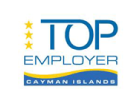Our Articles
Get an inside look at the people, stories and ideas that move us.

In today's fast-evolving corporate landscape, inclusivity is not just a buzzword but a fundamental aspect that can drive companies towards more significant innovation, employee satisfaction, and financial performance. Recognising the myriad benefits of a diverse and inclusive workplace, many forward-thinking companies are implementing various policies and practices to foster an environment where every employee feels valued and empowered.

As the hurricane season approaches (1 June – 30 November) in the Cayman Islands, residents and businesses must take proactive steps to ensure safety and minimise potential damage. The islands, known for their beautiful landscapes and vibrant communities, are also prone to the forces of nature. Here's a comprehensive guide on preparing your workplace and staff for the hurricane season.

The Start of Something New Admitting that I am a little nervous about writing my first blog is difficult, but hopefully, these snapshots into my apprenticeship program will inspire other aspiring HR professionals. Despite the nerves, I am incredibly grateful for the opportunity and experience provided by CML. Join me on my journey as I get a head start on my future!

The Cayman Islands, long recognized for its pristine beaches and as a leading captive insurance domicile, is now making waves in the reinsurance industry. Over the past six years, the islands have seen a meteoric rise in their reinsurance sector, with double-digit annual growth rates and a significant increase in the number of reinsurers obtaining licenses from the Cayman Islands Monetary Authority (CIMA).










